Using Neem Oil Before a Harvest: The Do’s and Don’ts
If you’ve been using neem oil in your garden for any amount of time, you’ve likely wondered whether you can spray it on your vegetables before a harvest or not.
Can you spray neem oil on plants a week before you harvest any veggies? A few days before? Can you harvest anything on the same day that you spray your plants?
Neem oil can be safely sprayed on plants prior to harvest, although it’s better to pick what’s needed first, then spray with neem oil afterward. If harvesting within a week of spraying neem oil, care should be taken to wash everything thoroughly with warm, soapy water, especially leafy greens.
If I were using chemical insecticides like Sevin in my garden, I’d follow the instructions on the bottle and err on the safe side when it comes to postponing a harvest after spraying with insecticides.
But neem oil is a different kind of insecticide. It’s a natural product derived from neem trees (Azadirachta indica), and it contains a naturally-occurring chemical compound known as azadirachtin, which causes all kinds of problems for plant-munching bugs once it’s ingested.
I love two things in particular about neem oil. First, it’s an incredibly versatile insecticide that kills a wide range of soft-bodied bugs. Second, neem oil breaks down quickly and can be washed off rather easily, so it makes decisions about harvesting pretty simple.
If you’ve got an infestation to treat and veggies that are nearly ready to harvest, there are certain things that you should and shouldn’t do prior to and after you’ve sprayed your plants with neem oil.
Let’s take a quick look at each, and I’ll share what I’ve done in the past when it comes to using neem oil sprays.
Using Neem Oil Before a Harvest: The Do’s and Don’ts
When it comes to fighting insect infestations with neem oil, I’d like to share 3 do’s and 3 don’ts with you to ensure that your newly-harvested produce is safe to eat after you’ve picked it off the plant.
Do: Plan Ahead and Harvest First
If you’ve noticed an infestation–maybe you’ve seen signs of aphids, spider mites, or other nasty garden pests–you’ll want to spray your plants as soon as possible since it’ll take neem oil several days to kill most bugs.
But before you do, take a quick walk around your garden and look for anything that might be ready to be harvested or for veggies (like peppers and tomatoes) that can be picked a little early and left to ripen on a sunny window counter.
Before spraying anything with neem oil, be sure to pick everything that’s ready to go. That way, you’ll have produce in your kitchen for several days, and you can give the neem oil time to work before harvesting again.
Do: Harvest 5-7 Days After Spraying (If Possible)
Neem oil is safe to use on most garden plants, and you can generally harvest your produce fairly soon after a neem oil application.
But if you have the ability to do so, I recommend waiting 5-7 days before your next harvest.
The reason is this: Neem oil deteriorates quickly when diluted, spread on plants, and exposed to the elements. By the time it’s been on your plants for 5-7 days, it’ll mostly be gone.
This also means that neem oil will have had time to do its work. If you harvest shortly after spraying neem oil, you’ll not only need to clean your produce extra thoroughly. You’ll also be prematurely removing the very ingredients that are supposed to be killing bugs in your garden.
Simply put, if you can wait 5-7 days before harvesting your produce, that’s the ideal approach.
Do: Harvest 1-4 Days After Spraying (If Needed)
Of course, life isn’t always ideal, and sometimes we need to harvest much sooner than expected due to changing weather conditions, family vacations, unexpected work demands, or many other reasons.
This happened to me last year. I had just sprayed my plants with neem oil only to realize that I needed tomatoes for a dish the following evening. I could have gone to the grocery store, but I’d been looking forward to cooking with my homegrown tomatoes.
So what did I do? I harvested them anyway.
Simply put, you can harvest produce after you’ve sprayed neem oil on your plants. You can even harvest while the neem oil is still wet on the plants (although I don’t know why you’d do this, and I certainly don’t recommend doing so).
But no matter when you harvest, if you do so within 48 hours after spraying with neem, you’ve got to wash everything thoroughly. This is especially the case the closer your harvest follows on the heels of the application.
Many commercial insecticides come with pre-harvest interval (PHI) instructions, which is a number that denotes how long you should wait after spraying the product before you harvest and eat your produce.
Many neem oil concentrates don’t come with PHI numbers, so generally speaking, I prefer to wait 5-7 days before harvesting, although I’ve had plenty of success harvesting before then (once I wash everything as well as I possibly can).
Don’t: Spray Neem Oil on Sunny, Warm Days
When it comes to neem oil, some of the most important advice I can give is this: Don’t spray your plants on sunny days. Don’t spray your plants on warm days. Don’t spray your plants in the morning or afternoon.
Whether you’ve got plans to harvest your plants or not, if you spray neem oil, it’ll coat your plants and oil, and when the sun comes out, the sunlight and warmth will heat up the oil, causing burns to your plants.
If you spray your plants lately, the burns will likely be minor. But if you’ve given your plants a thorough spraying with neem oil, you run the risk of severely damaging the plant or even killing it.
My recommendation is this: Harvest everything you can from your plants, then spray them in the evening, as late as possible but while it’s still light enough outside to see well.
If you do that, you’ll be able to cover your plants in a thick layer of neem oil but also leave enough time for the oil to dry before the sun rises the next day.
Don’t: Harvest Immediately After Spraying
At first glance, you might think that there’s no way you’d ever spray neem oil only to harvest your plants shortly thereafter. I thought that at first too.
But one day last year, I grew very worried about a spider mite infestation—which you can read more about in my articles on how spider mites spread, what they look like on plants, and what it takes for plants to recover from them—and I sprayed neem oil on all of my tomato plants.
Unfortunately, I wasn’t paying attention, and I had forgotten to harvest the ripe tomatoes before I sprayed them. I had a meal planned that night that required as many tomatoes as I could gather, and my wife had already prepped the other ingredients.
So what did I do? I harvested everything I needed, then I filled a bowl with warm, soapy water and gave every single tomato a gentle but thorough scrubbing.
Once I had done that, I realized that the tomatoes had no traces of neem oil on them, not even a scent (and everyone who’s used neem oil knows how pungent it can be).
Don’t: Eat Unwashed Neem-Sprayed Vegetables
As I noted above, I don’t recommend harvesting anything on the day you’ve sprayed your plants with an email, but if you’re in a pinch, it’ll be perfectly safe to harvest if you wash them thoroughly.
When I wash vegetables, I use a two-step process.
First, I grab a large mixing bowl, typically the largest one I have, and I put a teaspoon or so of liquid soap in it. I then fill the bowl with water, which creates a sudsy bath for my vegetables. I typically let my veggies soak for a few minutes.
After they’ve soaked, I want to make sure that I’ve gotten off any neem oil residue, so I use the soft side of a sponge and gently brush the fruit and veggies. I then rinse everything under tap water and lay the produce on a towel to air dry.
As you can tell, this isn’t rocket science. But it is a thorough way to wash whatever you’ve harvested.
If your produce has neem oil residue on it, this will ensure that no traces of it are left before you prep and eat your food.
How Soon Can You Eat Vegetables After Spraying Neem Oil?
As I’ve noted in this article on how long neem oil lasts, the chemical compounds found in neem oil, including the all-important azadirachtin, have a rather short half-life and typically break down within 3-4 days after dilution and spraying.
Given the time it takes for neem oil to break down completely, veggies can be harvested and eaten 5-7 days after applying neem oil to plants. However, care should still be taken to wash all produce thoroughly to ensure that all topical treatments have been removed from the produce.
Maybe the better question is: How long can you wait after spraying neem oil before you eat vegetables? If the veggies don’t necessarily need to be harvest, it never hurts to give them a few more days before doing so.
Is Neem Oil Safe for Humans, Dogs, Cats, and Other Animals?
As you can see from the many products available on Amazon, besides its commercial use as a natural insecticide, neem oil has sold as a skin and scalp care product It has also been touted as a natural remedy for fleas and ticks as well as animal skin conditions.
Research suggests that neem oil has many medicinal qualities, from helping with skin ulcers to use as a long-term acne treatment. In fact, neem oil has so many possible applications that one group of researchers referred to it as “nature’s drugstore.”
Allergic reactions to neem oil are rare, but they do happen. However, it seems that neem oil can also speed the recovery of topical wounds.
Of course, you shouldn’t take any course of action based on what you’ve read in a few articles. Please consult a medical professional before making any important healthcare decisions.
In terms of animal health, one group of researchers formulated an animal shampoo that seemed to have promising results in terms of its skincare qualities. Another group studied the effect of neem oil on canine skin conditions and concluded that neem oil treatments helped dogs who were suffering from atopic dermatitis.
But some researchers have looked beyond domesticated pets. A team in India conducted an experiment to see if custard seed or neem oils would do anything to help tick-infested cattle. When applied on buffaloes and cows, custard seed oil was more effective overall at killing off ticks, but neem oil produced much better results than doing nothing since it killed off 60-75% of ticks.
Yet another study looked at chickens suffering from scaly leg mites and concluded, after tests were completed, that neem oil could be used as an effective natural miticide, which meant that chemical acaricides weren’t necessary for the treatment of chickens suffering from mite-induced skin conditions.
Long story short, neem oil has a proven track record for many different kinds of uses. When used properly—and when used according to the direction of medical professionals—it’s a safe product that has done so much good for so many people.
Important Information
Do you want to learn more about buying, storying, mixing, and applying neem? If so, check out the articles below:
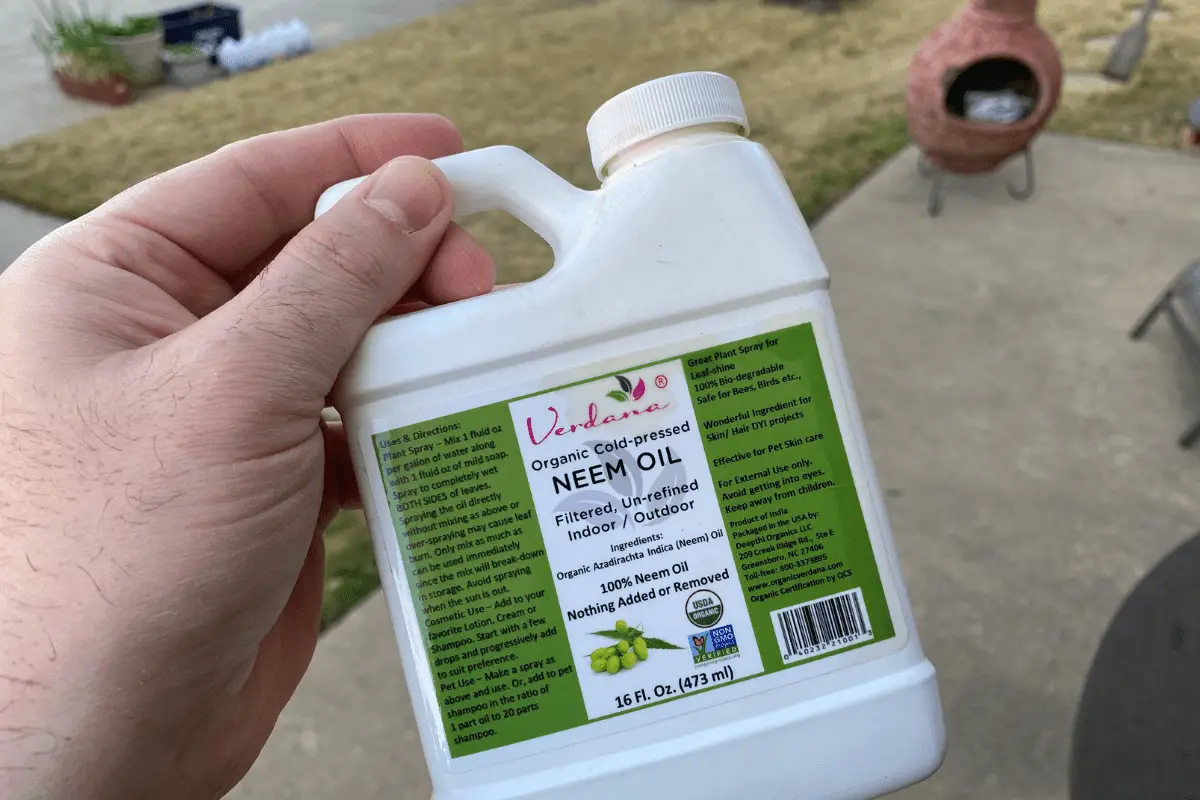
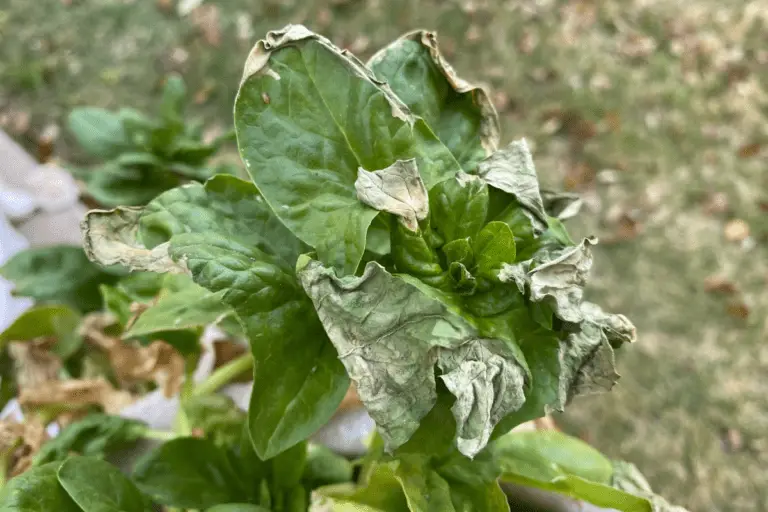
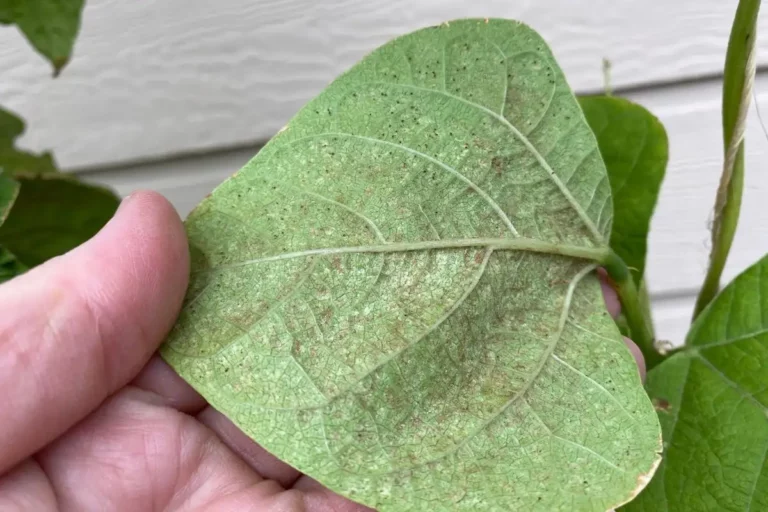
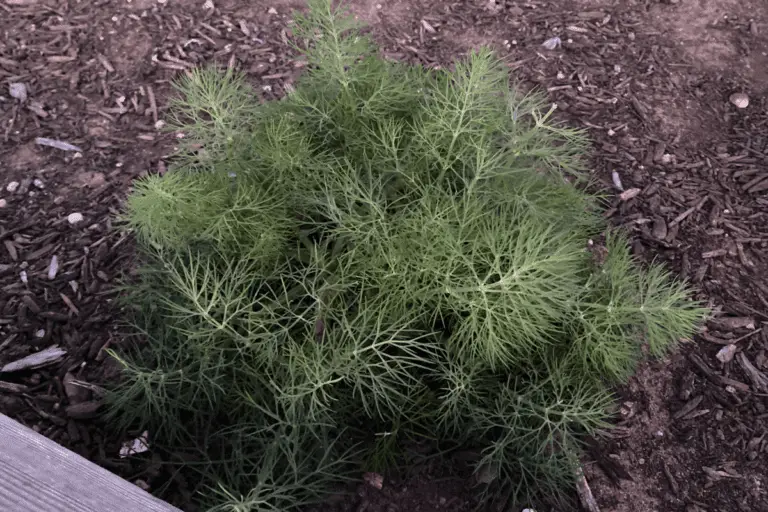
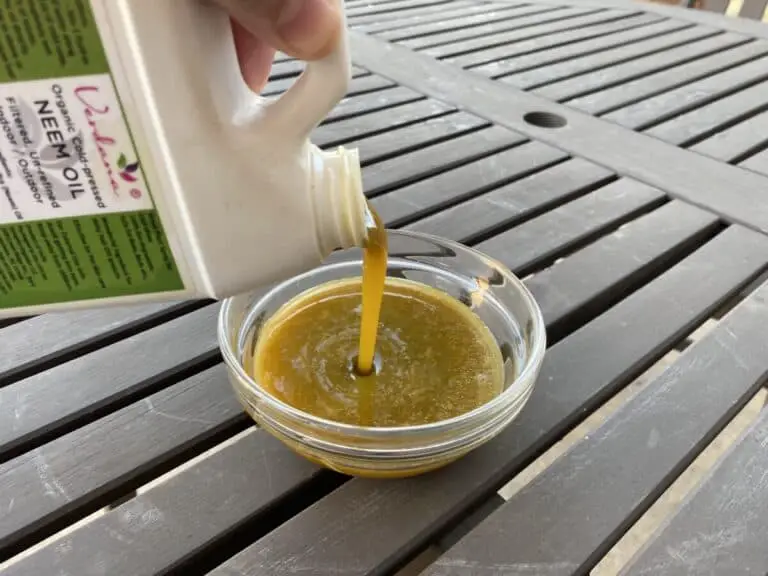
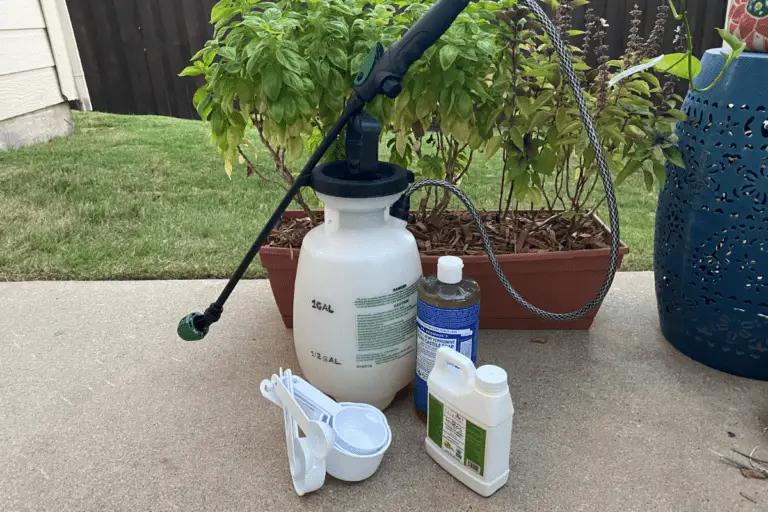
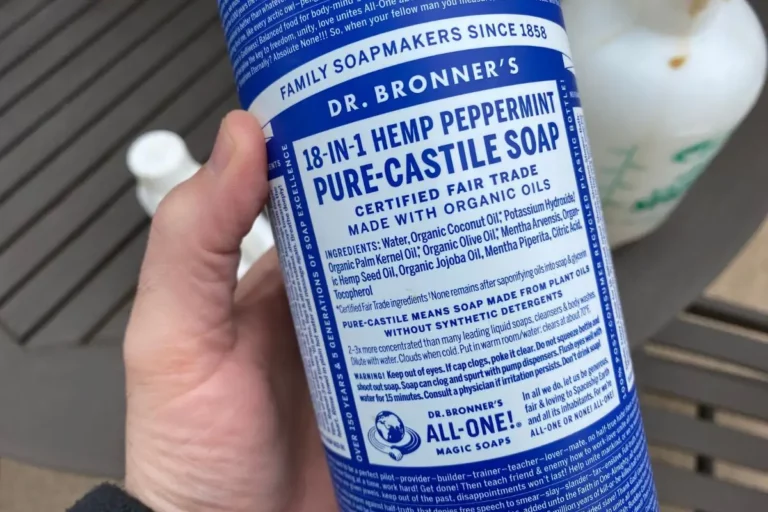
From start to finish, your content is simply amazing. You have a talent for making complex topics easy to understand and I always come away with valuable insights.
Thank you for the kind words. I’m glad I could help!